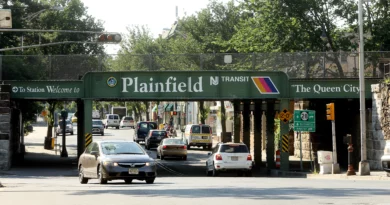John Barnett Mysterious Suicide After Boeing Whistleblowing Incident in North Charleston South Carolina
John Barnett, a seasoned Boeing quality control manager, dedicated over three decades to the company, with his final years at the 787 Dreamliner production facility in North Charleston, South Carolina. During his tenure, Barnett identified several safety and quality concerns that he believed were not adequately addressed, leading him to become a whistleblower—a role that would later intertwine with his untimely death.
Early Career and Whistleblowing
Barnett began his career at Boeing in 1985, steadily rising through the ranks to become a quality control manager. In this capacity, he observed practices that raised concerns:
- Substandard Parts: Barnett alleged that, due to production pressures, workers were installing substandard components on aircraft, potentially compromising safety.
- Oxygen System Defects: He voiced concerns about potential defects in the planes’ oxygen systems, suggesting that a significant percentage of masks might malfunction.
Despite reporting these issues internally, Barnett felt they were not adequately addressed. In 2017, he retired, citing job-related stress. Subsequently, he filed a lawsuit in 2021, alleging safety concerns and retaliation
Legal Proceedings and Retaliation Claims
In the years following his retirement, Barnett’s allegations gained attention, leading to legal proceedings where he testified about his experiences. He claimed that Boeing’s management retaliated against him for raising safety concerns, creating a hostile work environment that contributed to his decision to retire
Circumstances of His Death
On March 9, 2024, while in Charleston for legal proceedings related to his lawsuit, Barnett was discovered deceased in his vehicle in a hotel parking lot. The Charleston County Coroner’s Office ruled his death a suicide
A firearm and a notebook containing a suicide note were found in his car.
Reactions and Aftermath
Barnett’s family and legal team expressed skepticism regarding the suicide ruling, emphasizing his optimism and commitment to safety advocacy. They called for a thorough investigation into his death
Boeing issued a statement expressing condolences: “We are saddened by Mr. Barnett’s passing, and our thoughts are with his family and friends.”
This incident intensified scrutiny of Boeing’s safety practices and the treatment of whistleblowers within the company. In the months following Barnett’s death, additional whistleblowers came forward, alleging similar concerns about safety and retaliation.
Theories & Speculations
The death of John Barnett, a prominent Boeing whistleblower, has sparked various theories and speculations, especially due to the nature of his safety allegations and the circumstances surrounding his death. Here are some of the key theories circulating among observers, activists, and online communities:
Foul Play Theory
Some believe that Barnett’s death may have involved foul play rather than suicide. The basis for this theory rests on:
- Timing: Barnett was actively involved in legal proceedings against Boeing at the time of his death. His case was drawing significant media attention and could have pressured Boeing further.
- Potential Threats: Barnett had previously reported feeling unsafe due to his whistleblowing activities, claiming that Boeing managers had spied on him and tried to intimidate him into silence. Some speculate that his death might have been orchestrated to silence him permanently.
- Lack of Motive for Suicide: His family and legal team have insisted that Barnett was optimistic about his case and safety advocacy efforts, contradicting the suicide narrative.
Corporate Conspiracy Theory
Another theory suggests that Barnett’s death might be part of a larger corporate conspiracy to cover up safety flaws in Boeing’s manufacturing processes. Key points for this theory include:
- Retaliation Against Whistleblowers: Boeing has faced accusations of retaliating against whistleblowers in the past. Activists argue that Barnett’s death could be a warning to other potential whistleblowers within the company.
- Financial Stakes: Boeing’s reputation and financial interests were at stake, with billions of dollars tied to the 787 Dreamliner program. This raises suspicions that the company might have wanted to prevent damaging revelations from reaching the public.
- Government Collusion: Some conspiracy theorists propose that regulatory bodies, which have been accused of being too close to Boeing, may have played a role in suppressing Barnett’s concerns and, by extension, the circumstances of his death.
Suicide Due to Stress Theory
While his family and supporters have challenged the suicide ruling, some accept it, attributing it to Barnett’s prolonged stress:
- Psychological Pressure: Barnett endured years of legal battles, public scrutiny, and retaliation from Boeing. This could have created immense psychological pressure, potentially driving him to take his own life.
- Isolation: Whistleblowers often suffer isolation from colleagues, friends, and even family, leading to depression and suicidal thoughts. The prolonged stress from his battles with Boeing may have culminated in a tragic decision.
Framing Theory
This theory posits that Barnett may have been framed to make his death appear as a suicide:
- Staged Suicide: Skeptics suggest that the suicide note found in Barnett’s car may have been fabricated to mislead investigators. They also point to the sudden discovery of a firearm in Barnett’s possession, which his family claims he did not own or carry.
- Unexplained Evidence: Some reports of inconsistent evidence at the scene of his death have fueled speculation that Barnett was killed and the scene was staged to mislead investigators.
Miscarriage of Justice Theory
This theory emphasizes systemic flaws in how whistleblowers are treated in the U.S.:
- Lack of Protection: Barnett’s death has reignited discussions about inadequate whistleblower protection laws. Critics argue that stronger legal frameworks could have provided Barnett with better security and mental health support.
- Inadequate Investigation: Skeptics believe that Barnett’s death may not be thoroughly investigated, especially if the results would further damage Boeing’s already fragile reputation.
Broader Implications
Barnett’s case highlighted the challenges faced by whistleblowers in the aviation industry and the importance of corporate transparency and accountability. It underscored the need for robust mechanisms to address safety concerns and protect those who bring them to light.
As of October 2024, investigations into Barnett’s allegations and the circumstances of his death remain ongoing. His legacy continues to influence discussions about safety and ethics in the aerospace industry.
Discover more from City Towner
Subscribe to get the latest posts sent to your email.




